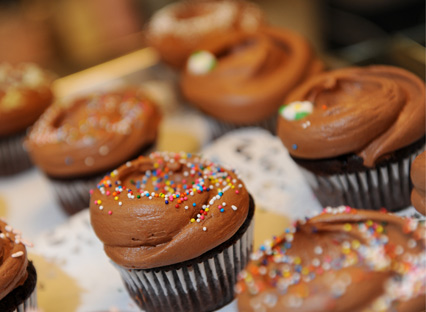Workplace cake culture 'a danger to health'
Senior dentist says office parties should offer fruit and nuts instead of sugar-laden treats

A free daily email with the biggest news stories of the day – and the best features from TheWeek.com
You are now subscribed
Your newsletter sign-up was successful
A leading dentist believes that eating cake in the workplace to celebrate colleagues' birthdays, engagements or leaving parties is a danger to health.
Professor Nigel Hunt, dean of the Faculty of Dental Surgery at the Royal College of Surgeons, argues that "cake culture" is causing obesity and dental ill health to rocket. "I'm not saying we need to ban such treats," he said. "But we do need a change in culture."
At his organisation's annual gala for dentists, Hunt is due to warn that workplace temptation is preventing weight loss. Instead of being given cake, he believes staff should be rewarded with healthy options such as fruit, nuts or cheese.
The Week
Escape your echo chamber. Get the facts behind the news, plus analysis from multiple perspectives.

Sign up for The Week's Free Newsletters
From our morning news briefing to a weekly Good News Newsletter, get the best of The Week delivered directly to your inbox.
From our morning news briefing to a weekly Good News Newsletter, get the best of The Week delivered directly to your inbox.
Hunt is expected to say: "Managers want to reward staff for their efforts, colleagues want to celebrate special occasions, and workers want to bring back a gift from their holidays. But for many people the workplace is now the primary site of their sugar intake and is contributing to the current obesity epidemic and poor oral health."
Criticising the temptation that "cake culture" puts in the way of those trying to lose weight, he will ask: “How many of us have begun such diets only to cave in to the temptation of the doughnuts, cookies or the triple chocolate biscuits?"
At the gala, where dessert will be mint panna cotta, British strawberries and chocolate "soil", Hunt will conclude: "Responsible employers should take a lead and avoid such snacks in meetings."
He estimates that nearly 65,000 adults every year require hospital treatment for tooth decay. Dentists recommend cutting down on sugary or starchy foods between meals as they give bacteria fuel to produce acids that decay teeth.
A free daily email with the biggest news stories of the day – and the best features from TheWeek.com